Here are all the anti-LGBTQ regulations in Singapore // LGBT Rights in Singapore
| Updated on
[UPDATE] In November 2022, Singapore’s parliament repealed Section 377A, a colonial law that criminalised sexual acts between men. Read more
“We do not harass them or discriminate against them.”
– Prime Minister Lee Hsien Loong, 2015
Anti-LGBTQ rhetoric in Singapore has shifted considerably over the last few decades.
With awareness of LGBTQ+ issues rising across the country, opponents switched from sowing outright disapproval to seeding indifference. Just as mounting scientific evidence debunked their claim that people choose their orientations and identities, opponents came up with a new argument: LGBTQ+ people aren’t that much worse off than us, so why should they even complain?
This new argument might sound mild, but it’s equally potent. People only have a limited mind space to care about societal injustice, so the more people are convinced that LGBTQ+ individuals aren’t actually worse off, the less they’ll care about advocating for change in that area.
This is the same argument wielded by Singapore’s government to justify their continued retention of anti-LGBTQ laws and suppression of LGBTQ+ representation. When probed about LGBTQ+ rights in the country, for instance, our Prime Minister frequently suggests that the LGBTQ+ community is free to live their lives here (2000, 2007, 2015, 2019). Education Minister Ong Ye Kung went even further, asserting in 2018 that the LGBTQ+ community faces no discrimination in housing, employment, and education.

These claims paint a rosy picture of the local LGBTQ+ community, but evidence suggests that the truth is far from it. It’s time we took a real, hard look at the reality that LGBTQ+ people face in Singapore.
The price we pay for being queer
In many aspects, Singapore’s a great place to be. Living standards are high, healthcare is great, and public safety is top-notch. But no matter how you slice it, or how positively you spin it, there’s no denying how many more disadvantages LGBTQ+ people face compared to our cishet counterparts.
After months of research, we’ve compiled a list of the financial, psychological, and legal price that queer people pay in Singapore, broken down into broad categories. It’s still not exhaustive, but it paints a good enough picture of the impact of institutionalised discrimination on the community. And it’s far from the rosy picture our politicians like to paint.

Here we go (skip to TL;DR below):
- Housing
- Education
- Employment
- Media representation
- Psychological safety
- Transgender-specific issues
- Child-rearing: adoption and artificial reproduction
- Healthcare
- Death (yikes)
- LGBTQ+ support organisations
- LGBTQ+ events
The legal basis for discrimination
In November 2022, Section 377A of Singapore’s Penal Code was repealed. This colonial era law criminalised sexual acts between men, and came with a jail sentence of up to 2 years.
At the same time, a Constitutional amendment was passed, which allowed the state to introduce and enforce laws or policies to reinforce the institution of marriage as one between man and woman.
In simple terms, the Constitutional amendment makes it such that anti-LGBTQ discriminatory policies or laws may not be legally challenged as unconstitutional. This means that government policies may discriminate against LGBTQ+ people if it reinforces marriage as a heterosexual-only institution.
The Constitutional amendment doesn’t cause harm in itself, but rather empowers other kinds of discriminatory practices and legally-enforceable rules.
On top of that, previous attempts to mount legal challenges to the constitutionality of Section 377A shed light on our legal system’s treatment of LGBTQ+ individuals and identities. In 2014, for instance, the Court of Appeal clarified in response to a S377A challenge that our Constitution doesn’t guarantee equal protection under the law on the grounds of sexual orientation. In March 2020, the High Court defended S377A as a legitimate law for society to signal its “moral disapproval of male homosexual acts”.
Taken together, it appears that discriminatory laws (and by extension, legally-enforceable rules) can be legitimate in the eyes of our courts, so long as they discriminate on the basis of sexual orientation. As probably the oldest anti-LGBTQ law in Singapore, S377A’s profound impact on the legal system simply can’t be ignored. Its indirect reach extends beyond private sexual activities and into the domains of media representation, education, employment, and more.
Marriage
There are two types of marriages in Singapore: civil marriages and Muslim marriages. Civil marriages are governed by the Women’s Charter, which expressly voids all same-sex marriage (Section 12(1)). Muslim marriages are governed by Syariah law, where same-sex marriages aren’t allowed as well.
On the surface, the denial of marriage seems like no big deal. Apart from tax benefits and the romanticised notion of marriage, what else do LGBTQ+ couples lose out on?
As it turns out, a lot.
The biggest impact here is that LGBTQ+ couples aren’t legally recognised as family members. This, for one, has a huge impact on a couple’s eligibility for housing. It also plays a huge role in child-rearing, healthcare, and estate inheritance. All of these add up to a significant impact on the quality and cost of living for LGBTQ+ couples in Singapore.
The real cost of discriminatory laws
Discriminatory laws don’t appear to cause much harm when viewed in isolation. The lack of constitutional protection doesn’t inherently harm the LGBTQ+ community. S377A isn’t actively used to imprison gay and bi men. The denial of marriage doesn’t cause much quantifiable harm in itself.
But these laws lay the groundwork that legitimises all other forms of institutionalised discrimination against the LGBTQ+ community in Singapore. These institutionalised rules, as we will show later, have huge and costly consequences. When viewed as a system, the indirect consequences of discriminatory laws become painfully apparent.
So brace yourself, because this is going to be a long list.
Housing
Housing accounts for nearly 20% of the cost of living in Singapore. And since about 80% of Singaporeans live in subsidised public flats, public housing policies have a significant impact on the cost and quality of living for LGBTQ+ individuals.
Since same-sex marriage is illegal, gay and lesbian couples are administratively treated as single individuals. As a result, they face harsh financial and time penalties on housing.
To illustrate the extent of these penalties, let’s take a look at the different types of housing in Singapore.
Built-To-Order (BTO) flats
BTO flats are brand new public housing flats that are built after purchase orders are collected. The Housing & Development Board (HDB) usually announces new BTOs every quarter, with each release containing a mixture of flat sizes. Once orders are collected, the flats will be built and ready in around 3 years. BTOs are the most heavily subsidised form of public housing in Singapore.
BTO rules, however, steeply penalise LGBTQ+ couples.
For starters, both applicants need to be at least 35 years old. That’s a crazy long waiting time. The median marriage age for cishet couples is 30 for men and 28 for women, so LGBTQ+ couples face anywhere between 5–7 years of additional waiting time. And since thousands of BTO applications a year are made by cishet couples 25 years or younger, this puts the time disparity at over a freaking decade in the most extreme cases.

But that’s not all.
LGBTQ+ couples are only allowed to choose the smallest flats in existence: 2-room flexi flats. These flats include a master bedroom, a kitchen, and a storeroom. Compare this with a 4-room flat, which has 2 more bedrooms, an extra living/dining area, an extra common bathroom, and an extra service yard. To put the sizes in perspective, a 2-room flat is roughly 3–4 parking lots large (36 sqm–46 sqm), while a 4-room flat is twice as big at 8 parking lots (90 sqm). (Do note that 4-room flats aren’t even the biggest types of flats.)

And then comes the final blow: the income ceiling. To qualify for a BTO, the household’s total monthly income can’t exceed S$7,000. A same-sex couple at age 35 is expected to draw a combined median income of S$12,928 for men and S$11,552 for women (PDF report, Table 23). That’s way above the BTO income ceiling, which means that LGBTQ+ couples drawing median salaries would likely never qualify for a BTO.
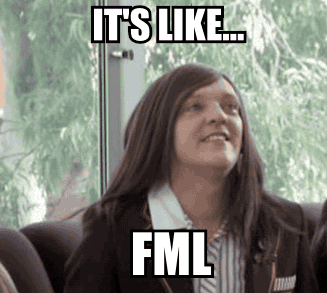
Let’s do a recap on BTOs. LGBTQ+ couples need to wait up to a decade more than their cishet counterparts to qualify, and are only allowed to apply for the smallest flats. Most couples would then realise that the median income they draw disqualifies them from BTOs altogether.
Resale flats
Resale flats are public flats that are at least 5 years old, that are sold in an open market. That means the prices are pretty much decided between the home owner and the prospective buyer. As a result, resale flats typically cost more than BTOs.
But how much more expensive? The short answer: it depends.
The long one: we’ll have to crunch some numbers. Let’s compare a 4- or 5-room BTO flat that a cishet couple can buy, with a corresponding 4- or 5-room resale flat that’s available for an LGBTQ+ couple.
According to HDB’s own press release, comparable resale flats could cost anywhere between 25% to 179% more than a BTO flat of the same size, in a wide range of estates (Bukit Batok, Tengah, Yishun, Queenstown and Kallang/Whampoa). That’s a very substantial additional cost that same-sex couples are forced to bear in the resale market.
These are just HDB's rough calculations, and in reality, flat prices depend on factors such as the district, the facilities in the area, floor height of the unit, and more. But the calculations above should give you a pretty good idea of the financial penalty that LGBTQ+ couples pay to get a similar living condition as their cishet counterparts: around 25%–179% the price of a flat. And that’s not even counting the additional decade of waiting time. (Yes, they still need to wait till they’re 35 before they can buy a resale flat.)

Private properties
We’re entering fantasyland territory here, but LGBTQ+ couples who don’t want to wait till they’re 35 years old to own a home only have one other option: buy a private property. But this isn’t realistic for most people.
Private properties are freaking expensive (that’s why less than 20% of Singaporeans can afford to live in them). A new condo unit that’s slightly smaller than a 4-room flat cost S$920,000–S$1,640,000 in 2018.
To be fair, private properties aren’t exactly comparable with public flats, because they have better facilities or are more centrally located. But that doesn’t detract from the fact that they cost S$500,000–S$1,400,000 more than a BTO flat. Just for downpayment alone, you’ll need up to S$328,000 in your CPF account — enough to buy you an entire BTO flat.
This illustrates the deep financial chasm that LGBTQ+ couples will need to jump across, if they ever want to own a home before they turn 35.
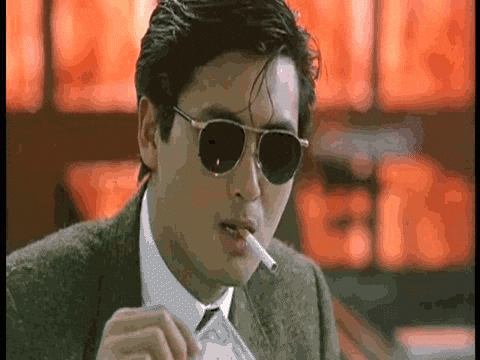
To summarise: Housing (buying)
- LGBTQ+ couples aren’t allowed to buy a home until they’re both 35 years old, unless they’re rich enough to buy ~$1m private properties.
- At 35, LGBTQ+ couples would have waited up to 14 years longer than their cishet counterparts.
- But by then, couples who draw the median salary will no longer qualify for BTOs because they cross the income ceiling.
- Lower income couples may still qualify, but only for the smallest flats, and have to pay S$15,000 more than cishet couples.
- LGBTQ+ couples who are forced to buy resale flats can expect to pay 25%–179% more for it than their cishet counterparts did for equivalent BTO flats.
All in all, LGBTQ+ couples are royally screwed by the denial of marriage and HDB’s policies, and have to spend more time and money to get their own house. The additional time spent waiting also means that LGBTQ+ couples lose out on capital gains on the value of their houses, which is yet another financial penalty indirectly inflicted on them.
Let’s bear in mind that housing not only accounts for nearly 20% of living expenses here, but can also have a profound impact on the psychological wellbeing of LGBTQ+ individuals, especially if they’re unable to move out of hostile family environments.
Education
Update: we’ve written a super comprehensive article on all the ways Singapore’s schools have been suppressing, erasing, and bullying LGBTQ+ folks.
LGBTQ+ voices are actively suppressed in Singapore’s education system. We’ve written about this in detail in our previous post, so we’ll just provide a summary here.
In general, schools deny the existence of LGBTQ+ identities by almost excluding them from the sex education curriculum and prohibiting teachers from giving affirming messages to students. Some teachers push this further by bullying or publicly outing their LGBTQ+ students. That, together with gaps in the school counselling system, puts LGBTQ+ youth at greater risk of mental stress. Schools also have a track record of banning LGBTQ+ speakers at events, citing guidelines from the Education Ministry. The Ministry has denied the existence of such guidelines, which only made things look more sketchy.

Employment
Workplace harassment of LGBTQ+ individuals is prevalent in Singapore. A 2013–2014 census found, for instance, that 15% of LGBTQ+ individuals faced discrimination or bullying at work (para F40). And unless their employers have taken a clear stance against discrimination of all forms, most victims are reluctant to report such behaviours, for fear of further retaliation.
But that’s not all. Employers could probably dismiss LGBTQ+ individuals just because of their identity, and face no legal consequences. Here’s why.
The Employment Act was amended in 2018 to give employees additional protection against wrongful dismissals. Guidelines published by the Manpower Ministry set out four broad grounds for a dismissal to be considered wrongful. Discrimination is one of them.
However, the guidelines only list down discrimination on the basis of age, race, gender, religion, marital status, family responsibilities, and disability (page 3, para 10). While the guidelines aren’t meant to be exhaustive, they put discrimination on the basis of sexual orientation or gender identity in a state of limbo.
And queer people have good reason to be worried. As mentioned before, Singapore’s legal system appears to allow discrimination on the basis of sexual orientation. If an employer dismisses someone on the basis of their LGBTQ+ identity, it’s highly unlikely for the courts to declare such discrimination as unjust.
Media representation
LGBTQ+ representation is actively removed from many aspects of Singapore’s society. We’ve written about this in detail, and we highly recommend reading it, because it gives you a sense of the lengths that our institutions have gone to remove LGBTQ+ voices.
In summary, IMDA has a slew of legally-enforceable guidelines and regulations that effectively removes or reduces LGBTQ+ representation in TV (free-to-air, cable, and on-demand), radio, movies, video games, arts entertainment events (concerts, plays, etc.), and magazines. It’s a pretty extensive way of erasing LGBTQ+ voices out of existence, and it’s been pretty effective so far.
With practically no representation of LGBTQ+ voices in Singapore’s media landscape, large segments of the general population will never hear or understand LGBTQ+ perspectives. That makes it easy for politicians to shape discussions on LGBTQ+ issues.

Psychological safety
Warning: This section talks about abuse, psychological trauma, and suicide. If these topics make you uncomfortable, please skip to the next section.
We all want to feel safe. Unfortunately, psychological safety is a luxury that many LGBTQ+ folks don’t get to enjoy.
Don’t get us wrong: Singapore is generally a safe place, and many LGBTQ+ people in the country don’t actively worry about getting beaten up in the streets. But violence against queer folks still happens on a daily basis.
Safety at home
Behind closed doors and within the confines of their homes, many LGBTQ+ individuals face familial rejection or even abuse. Sayoni’s recent research uncovered many such atrocities that queer people have endured.
Sheila, for instance, was brutally beaten up by her father for being too effeminate, and had to spend 1.5 months recuperating in the hospital. When paramedics arrived at the scene, her wounds were so severe that they thought she was beaten up by multiple people. Sheila was nine when this happened.
In another instance, Sarah’s parents invited people from their church home to pray her queerness away. The traumatic session lasted over 5 hours, as they shouted, prayed, and even burned her belongings at the kitchen stove. Sarah was 12.
There are many other instances of rejection and abuse that LGBTQ+ individuals face at home. A personal friend, for example, was given a choice by their parents between getting kicked out of the house, and going through psychological conversion abuse (also known as conversion “therapy”) [Note 1]. Given how expensive housing is in Singapore, that really wasn’t much of a choice. They now live in fear of being evicted from their family house at any moment, and went to the lengths of preparing a secret bank account and a backup phone number, should the day ultimately arrive.
The examples above might sound exaggerated, but they are real experiences lived by members of our LGBTQ+ community. 20% of LGBTQ+ individuals are estimated to live in hostile family environments in Singapore. No one should ever have to experience such levels of fear, and especially not in their homes. But institutionalised discrimination and active silencing of LGBTQ+ voices ensure that this dark side remains a hidden part of Singapore’s “family-friendly” society.
Note 1
It’s critical to note at this point that psychological conversion abuse is classified as pseudoscience (meaning that it’s fake science). The World Psychiatric Association has condemned such practices as unethical, and said that its theories have no scientific basis. The American Psychiatric Association holds a similar position. The International Rehabilitation Council for Torture Victims also classified conversion abuse as a form of torture. But psychological conversion abuse remains legal in Singapore.
Safety in public spaces
For the most part, LGBTQ+ people don’t get attacked on the streets by random passersby. But they’re still subject to other forms of hostility.
Trans women, for instance, often get chased out of public toilets because their physical appearance don’t fit society’s arbitrary standards of femininity. The same can happen to masculine-presenting lesbian women.
Queer women are also often the subject of sexual harassment or even assault. Same-sex couples who hold hands in public do so with the mental preparation of receiving weird stares or name-calling.
In more quantitative terms, nation-wide surveys conducted in 2012 and 2013 found that over half of their LGBTQ+ respondents have experienced bullying on the basis of their identity while growing up (para D16). And as we’ve mentioned, workplace discrimination is prevalent.
Thankfully, safe public spaces do exist in Singapore. Bars, bookstores, and university campus grounds can be spaces where LGBTQ+ individuals are safe and free to be themselves. But these spaces are too far and few between.
Psychological wellbeing
It’s no secret that LGBTQ+ individuals have a higher risk of suffering from stress, depression, and other psychological challenges. LGBTQ+ youth in Singapore, for instance, are found to have a higher risk of suffering from mental problems and depression than their peers; more worryingly, these problems may permanently carry on into adulthood (para D17). Abuse and discrimination have also led LGBTQ+ youth to have a higher incidence of suicidal thoughts and attempts (para D17).
Let this sink in — young LGBTQ+ people are literally dying from discrimination.
The need for LGBTQ+ counselling services is also ever increasing. LGBTQ+ support organisation Oogachaga has seen demand for their counselling services double between 2013–2018, and spike by over 70% after the circuit breaker measures kicked in (as people are “trapped” with their families).
To be clear, being queer itself is unlikely the cause of mental health struggles. A 2011 meta analysis found increasing scientific consensus that discrimination and social prejudices play an important role in suicide attempts and mental disorders in LGBTQ+ individuals.
“Being gay does not make one biologically predisposed to mental health disorders. Rather, it is because some of them face discrimination and acceptance issues at their workplace or at home,”
– Dr. Adrian Wang, consultant psychiatrist at Gleneagles Medical Centre.
To summarise: Psychological safety
LGBTQ+ individuals face heightened levels of stress and discrimination almost everywhere: at home, in public spaces, and at work. Extreme cases of rejection or discrimination have also led to physical and psychological abuses. This has not only increased the risk of mental health issues amongst LGBTQ+ individuals, but also increased their incidence of suicide attempts.
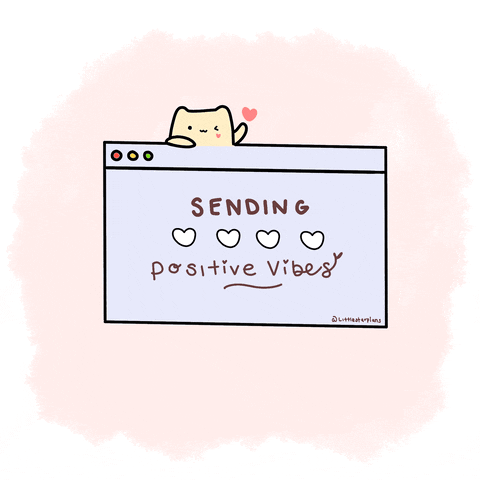
Transgender-specific issues
Singapore’s transgender community suffers from additional setbacks compared to the rest of their cisgender LGBQ+ counterparts, enough to warrant a dedicated section. Let’s look at some of them.
Heightened discrimination
Trans individuals who go through physical transitioning change parts of their physical appearance, and as a result are unable to hide their identity from others. June Chua, founder of local trans shelter The T Project, says that trans people often don’t have the luxury of choosing whom they come out to, because of how visible their changes are. Many of them face the impossible choice of living a false identity, or living true to themselves and outing their identity to everyone around them.
Trans individuals also face a higher incidence of familial rejection. They could even be beaten up (like Sheila was when she was nine) or chased out of their family home at a young age. Singapore’s public housing policies mean that many of these individuals can neither legally buy a subsidised house, nor afford to pay rent.
For that reason, many end up homeless, and some turn to sex work to sustain their living. The T Project was set up precisely to address the issue of homelessness amongst trans individuals. A report by Yale Law School and Project X also outlines the many forms of discrimination that trans sex workers face, from police brutality (page 12) to governmental discrimination (page 33).
Medical transitioning
Trans individuals may choose to medically transition their gender, if they can afford to, and if they (and their doctor) believe that doing so will alleviate their gender dysphoria. Medical transitioning consists of two broad categories: hormone therapy and sex reassignment surgery.
Hormone therapy involves taking a prescription of hormones that alters secondary sexual characteristics, which are traits associated with a particular sex, but doesn’t include the sexual organs. Sex reassignment surgery, as the name implies, involves a surgical alteration of a person’s sexual organs.
Let’s be clear: medical transitioning is expensive. Based on this comprehensive guide, hormone therapy could cost around S$100 per month in the first year. That’s not even including vocal therapy, which is estimated at S$150 per session.
But that’s nothing compared to sex reassignment surgery. Vaginal construction surgery (for male-to-female trans people) costs between S$20,000–S$30,000, and penile construction surgery (for female-to-male people) can cost up to S$150,000. And since these surgeries are not easily available in Singapore, many trans individuals opt to do them overseas and will need to fork out extra travel expenses. The massive medical cost, as well as high risk of complications, is the reason why many trans individuals don’t opt for sex reassignment surgeries.
Which brings us to their next obstacle.
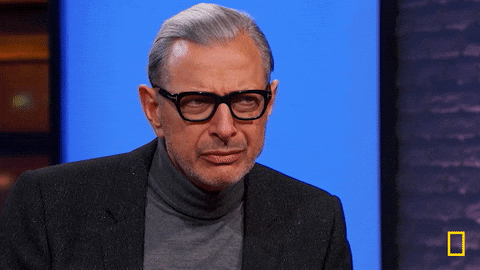
Gender marker changes
A gender marker on an identification document (such as a passport, IC, or birth certificate) specifies the person’s gender. Since trans people are assigned a different gender at birth, their IDs often contain the wrong gender marker. A trans woman, for example, would have the “Male” gender marker on her IDs.
Unfortunately, trans individuals in Singapore are only legally allowed to change their gender markers after they’ve undergone complete sex reassignment. No amount of hormone therapy or psychiatric evaluations can replace that requirement.
And since sex reassignment surgeries are prohibitively expensive, many trans folks are stuck in a state of administrative limbo, where their physical appearances reflect a different gender than their IDs’ gender markers. This might sound trivial, but it has profound implications on their daily lives.
Because their physical presentation differs from their gender markers, trans people are forcefully outed every time their ID needs to be shown to someone else. This includes scenarios like overseas travels, job applications, bank applications (like opening a bank account or taking up a loan), visits to the doctor, and even trivial tasks like mobile plan applications. Every time a trans individual performs one of those tasks, they inadvertently out themselves to the administrative staff handling the task.
The only way for them to get out of that is to take on steep medical costs and risks. All that, because of an administrative requirement.
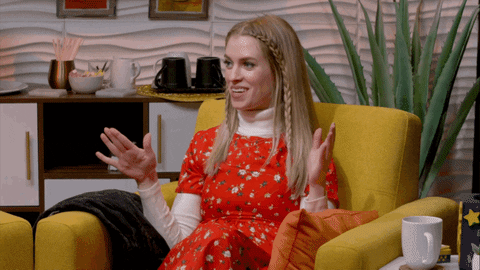
To summarise: Transgender-specific issues
Trans folks in Singapore suffer from additional discrimination at home and in public, because it’s difficult for them to selectively come out to people. They also undertake huge medical costs for medical transitioning, with some surgeries being only available overseas. And because of an administrative requirement, trans folks have to complete full sex reassignment before their IDs can reflect the correct gender. Those who don’t will have to out themselves to strangers for simple, mundane tasks that most of us take for granted.
Child-rearing
LGBTQ+ families in Singapore face steep challenges when it comes to raising children. Because same-sex marriage is legally voided, couples face difficulties in being recognised as legal parents of their children.
It’s worth noting that this is an extremely complex area, with much legal uncertainty. Please refer to legal guide book “Same but Different” for more details, and seek legal advice if you personally face such issues.
Adoption
Since same-sex marriage is illegal, couples are administratively treated as single individuals. While it’s technically possible for single individuals to adopt children, LGBTQ+ individuals may face stricter scrutiny (page 38) and be susceptible to personal biases of the reviewers.
Even if the adoption process is successful, only the person who applied for it will be recognised as the child’s legal parent (page 42). Their spouse or partner will not be recognised, even if they’re legally married outside of Singapore (page 42). The non-applicant partner could only apply to be a guardian of the child, but the outcome can’t be guaranteed (page 30), and they’ll likely never be recognised as the child’s legal parent (see “Death” section for its implications).
Artificial reproduction
There are several methods of artificial reproduction, from artificial insemination for women, to surrogacy for men. For most LGBTQ+ couples who use artificial reproduction methods, it’s tricky to get both partners legally recognised as parents.
For the most part, the gestation mother (i.e. the woman who carries the child to birth) will get legal rights as the parent of the child (page 24). For lesbian couples, the non-gestation partner won’t be recognised as the parent of the child, even if the couple is legally married outside of Singapore (page 30).
Surrogacy is legally complex in many parts of the world. Sperm donors are generally not recognised as legal parents of the child in Singapore (page 28), so gay couples who employ surrogacy will likely not be recognised as legal parents of the child. In 2018, however, a gay man was allowed to adopt his child that was born out of surrogacy. It’s worth noting that this was a 4-year legal battle, and the court made it clear that their decision was not made as a form of support for surrogacy, but in the best interest of the child’s wellbeing.
Heterosexual married couples with at least one trans individual will likely face difficulties or denial of treatment for assisted reproduction, which is only catered towards cisgender married couples (page 33).
To summarise: Child-rearing
LGBTQ+ couples face immense hurdles in forming their families. Even if their adoption or artificial reproduction processes are successful, at least one of the partner will never be recognised as the child’s legal parent.
Healthcare
Singapore’s healthcare system is largely neutral towards the LGBTQ+ community. The Singapore Medical Council’s Ethical Code and Ethical Guidelines, for example, forbid doctors from discriminating against patients on the grounds of sexual orientation (page 21, B1.1).
LGBTQ+ families, however, might find themselves caught in unique problems that cishet families don’t face, stemming from the lack of marriage recognition.
Visiting and receiving medical updates
While no specific law in Singapore regulates hospital patient visitors (page 99), LGBTQ+ partners may face challenges because they’re not legally recognised as family members. Ill-intentioned family members could potentially deny a partner from visiting a patient (page 99).
To safeguard against this, LGBTQ+ patients should expressly inform their medical team to allow their partner to visit them (page 99). Patients may also nominate their partner as the emergency contact, so that they’ll get notified should things take a bad turn (page 99).
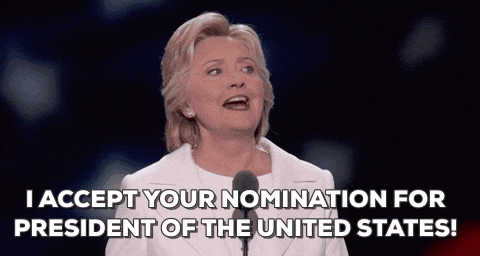
Use of CPF for medical bills
Medisave is a national savings scheme that helps people save up for medical expenses later in life. Since same-sex couples are not legally recognised as family members, they’re not allowed to use their own Medisave balance to pay for their partner’s medical bills. Individuals are also unable to transfer their CPF balances to their partner’s account.
This means that LGBTQ+ couples will need to take on additional financial planning for medical expenses, because funds in their CPF accounts can’t be used for their partner’s medical bills.
Death (inheritance)
The drafting of a good, comprehensive Will is a legal burden that all LGBTQ+ couples are forced to undertake, if they wish to leave their partner or children with any of their assets. Because even in death, the legal impact of the lack of marriage can be keenly felt.
In the absence of Wills and nominations for CPF and insurance policies, the assets of a deceased individual will be distributed according to Singapore’s intestacy law. Most Singaporeans don’t have to worry about that, because the rules are comprehensive and generally make sense.
LGBTQ+ couples, however, aren’t recognised as family members, and are completely excluded from intestacy rules. This means that LGBTQ+ couples who don’t have properly drafted Wills and nominations will leave their partner with absolutely nothing upon death. Even in the unlikely event that the deceased individual has no other living family members, the assets won’t go to their partner (it’ll go to the government).
On top of that, since only one partner in a same-sex couple can be legally recognised as a parent of their children, the non-legally-recognised-parent will need to make special legal preparations in order to leave their child with anything.
Muslim inheritance laws
Muslim LGBTQ+ individuals face additional challenges in inheritance, because they’re subject to faraid (Muslim intestate law). Even with a valid Will, a Muslim individual is only allowed to distribute a third of their estate, while the remainder will be distributed according to faraid rules (which only looks at legally recognised family members).
This means that Muslim LGBTQ+ individuals will only be allowed to distribute a third of their estate to their partner (or children, if they’re the non-legally-recognised-parent). It’s worth noting, however, that CPF monies and insurance policies are not considered part of a deceased person’s estate, and so can be nominated freely and wholly to their partner or children.
LGBTQ+ support organisations
LGBTQ+ organisations in Singapore provide critical support to the community, such as counselling services and even shelter for those kicked out of their homes. However, many of them face challenges in being recognised as non-profit organisations or charities. The T Project, for example, was rejected in 2016 and 2017 when they applied to be a non-profit organisation, because the government agency deemed their homeless shelter to be against national interests. (They finally succeeded in 2019.)

To understand why this is important, we need to take a closer look at the tax implications of different organisational structures.
Tax benefits of being non-profit
Donations that LGBTQ+ organisations receive, as well as payment for their services, are taxable. To be fully exempt from tax, organisations need to attain the Charity status — which is only given to non-profit entities.
Considering the default tax deductions and rebates, an organisation may expect to pay roughly 6.4% of tax on their first S$200,000, and the full 17% on income beyond S$200,000. LGBTQ+ organisations, who are already spending considerable time raising funds just to continue their operations, are understandably reluctant to part with a cut of their donations.
Till date, we only know of one LGBTQ+ support organisation that managed to attain the Charity status.
Tax benefits for donors
Donors of LGBTQ+ organisations cannot use their donations to reduce their income tax, unless the organisation is an Institute of Public Character (IPC). Only organisations with the Charity status may apply to be an IPC, and as far as we know, no LGBTQ+ organisation was ever granted IPC status.
(Note: to be clear, some LGBTQ-friendly support organisations have attained IPC status, but none of the LGBTQ-focused ones have.)
Financial penalties on LGBTQ+ organisations
Blocking LGBTQ+ organisations from registering as non-profit entities might seem trivial, but it can have ramifications on the financial costs they have to pay in taxes. Organisations that fail to be registered as non-profit, or that fail to achieve the Charity or IPC status, might face much more difficulties in getting donations from corporations and personal donors.
LGBTQ+ events
Individuals or organisations who wish to organise public events are required to submit an application to the police, if they expect their crowd size at any point to exceed 5,000 people. The Public Order Act gives the police the ability to reject applications if they think that the events will cause public disorder or hostility between different groups of people (Section 7(2)).
Not surprisingly, the police has applied their power to ban an LGBTQ+ run event twice (in 2007 and 2014), claiming that the run will somehow disrupt public order. There’s no evidence to suggest that the police will change their treatment of future public LGBTQ+ events.
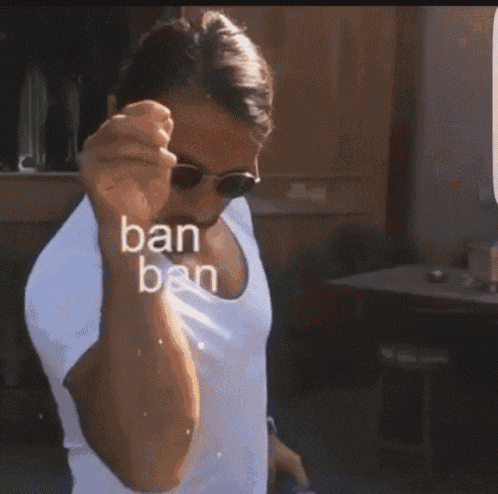
Grand summary
Phew, that was pretty intense.
In the summary below, categories that we think can be linked back to S377A’s discriminatory effect are labelled with [S377A], and those that we think can be linked back to the lack of marriage are labelled with [Marriage]. Here we go:
- Housing (buying): LGBTQ+ couples wait up to a decade longer than their cishet counterparts, will likely be disqualified from BTOs, and have to pay substantially more for a house (in the resale market).
- Education: LGBTQ+ identities are denied in sex education classes, and teachers are prohibited from giving LGBTQ-affirming messages to their students. School counsellors face administrative obstacles in providing LGBTQ-affirming counselling. LGBTQ+ speakers are routinely banned from events.
- Employment: Workplace bullying and harassment of LGBTQ+ individuals is prevalent. The law also potentially allows employers to dismiss employees on the basis of their sexual orientation or gender identity.
- Media representation: LGBTQ+ voices are systematically and extensively removed from Singapore’s media spaces. IMDA employs their guidelines to effectively remove all instances of LGBTQ+ representation.
- Psychological safety: LGBTQ+ individuals face discrimination and psychological stress almost everywhere: at home, in public spaces, and at work. Physical and psychological abuse aren’t uncommon. Psychological conversion abuse is legal. LGBTQ+ youth are at higher risk of developing mental health issues and have higher incidence of suicide attempts than their cishet counterparts.
- Transgender-specific issues: Trans individuals face heightened discrimination because they can’t choose whom to come out to. Medical transitioning costs can get extremely high, and trans folks are forced to pay for it if they wish to change their gender markers on official IDs.
- Child-rearing: LGBTQ+ couples face steep challenges in adoption and artificial reproduction. Even if they’re successful, only one of the partner will be legally recognised as a parent.
- Healthcare: LGBTQ+ couples need to take on extra precautions to ensure that their partner isn’t blocked from visiting them. They also need to take on additional financial planning for medical bills, because they’re unable to use their Medisave savings to pay for their partner’s medical bills.
- Death: LGBTQ+ couples need to properly draft their Wills and nominations if they wish to leave their partner (or child) with anything after their death.
- LGBTQ+ support organisations: Support organisations are routinely blocked from being registered as non-profit entities, which is a crucial step in reducing the amount of tax they pay on donations they receive.
- LGBTQ+ events: The police has routinely banned public LGBTQ+ events from happening, claiming that such events will lead to public disorder.
Any single instance of discrimination above can be justified with seemingly logical explanations. One can argue, for example, that housing policies are targeted at all single people, not just LGBTQ+ couples. The police may be justified in their ban of LGBTQ+ events, because radical opponents of LGBTQ+ rights may choose to turn up and cause disorder.
But discriminatory systems are highly inter-reliant, and cannot be taken apart and evaluated in isolated chunks. The number of excuses and justifications needed to explain away the entire system of discrimination should convince you that the discrimination is, indeed, real. And even if certain instances weren’t specifically designed to target LGBTQ+ people, the resulting harm that the system inflicts on them — across different aspects of life — is undeniable.
But how did we get here?
LGBTQ+ issues are divisive because the arguments on both sides are uncompromisable moral arguments. Proponents argue that human rights are unalienable, and that discrimination on any basis is wrong. Religious groups interpret LGBTQ+ identities to go against their gods’ will. A compromised position on either side calls into question the entire basis of their argument.
But why, you might ask, would a secular state such as Singapore listen to arguments of religious persuasions? Well, because they don’t. Because the decision wasn’t based on morality. It has always been about power.
Singapore’s official anti-LGBTQ+ stance started when the British imposed their legal systems and moral perspectives on us. We had no say in it. The British did it because they controlled Singapore — they had power over us.
Religious organisations have historically been powerful, too. Even today, they continue to play a significant role in society, have proper national and cross-national organisational structures, and a structured way of consolidating wealth from members. City Harvest Church, a local megachurch, held S$20m in cash and over S$135m in assets at end 2018. But that’s nothing compared to New Creation Church, which collected S$122m from its members in 2018 alone, and had reserves of S$633m. To be clear, there’s really nothing wrong with the wealth or power of religious groups; they often engage in charitable acts that benefit many in society. We’re merely trying to illustrate the power that religious organisations can wield.
LGBTQ+ organisations, on the other hand, are often disparate and independent from each other. There are no cross-national LGBTQ+ mega-organisations. And as mentioned before, many local LGBTQ+ organisations struggle with getting registered properly due to administrative barriers, and have to campaign hard to raise donations just to continue operations.
It would be naive to think that such huge power imbalances had no effect on the status quo that we live in today. Singapore’s government is widely known to be a pragmatic one, basing its decisions not so much on moral arguments, but outcomes and results. When viewed from this perspective, the possible reason for their anti-LGBTQ stance becomes clear: stability.
With behemoth mega-organisations on one side, and small, independent groups on the other, the pragmatic choice is obvious. Siding with the behemoths will always be less troublesome and yield more stability. Moral arguments need not even come into consideration. And until LGBTQ+ rights supporters can collectively wield enough power, they will never get a true seat at the table.
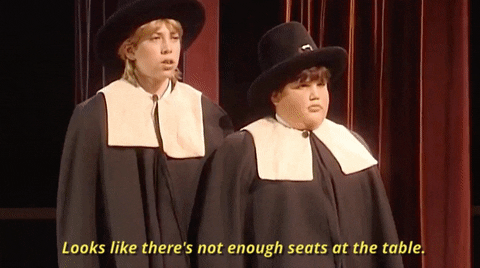
The quest for power
Let’s get this out of the way: rioting or violence isn’t the solution in Singapore. It might be tempting to think so, with recent civil rights developments in the US. Even looking back at history, human rights progress were rarely made by moral arguments, but more so by massive protests and riots.
But riots and acts of civil disobedience in recent Singapore history have never worked out well for the protestors. If anything, it has proven to be ineffective in creating change. It’s also (quite obviously) illegal.
The great news is that there are ways the LGBTQ+ movement can gain power without resorting to violence.
Soft power
Knowledge is a very powerful tool for change. The biggest obstacle preventing the LGBTQ+ community in Singapore from receiving widespread acceptance remains the lack of understanding. With censorship being heavily employed in the status quo, peoples’ perception of the community is shaped by stereotypes and half-truths. We need to break this cycle by showing them the true extent of discrimination here, and by showing them that LGBTQ+ individuals are just humans, too.
And this is actually already working.
Recent surveys indicate that the youngest generations in Singapore are the most supportive of LGBTQ+ rights, with only 35% disapproving gay sex and 30% gay marriage (pages 32–33). Their widespread use of the internet has no doubt unlocked their ability to learn about the LGBTQ+ community beyond state-regulated media spaces. A significant amount of effort needs to be made to reach out to other segments of the local population, to let them learn about the disadvantages that LGBTQ+ people suffer from. If that can be achieved, the gap will be closed, and change accelerated.
Political power
Every time a legal challenge was made against S377A, the courts would suggest that such matters are socio-political in nature, and best decided by Parliament. And every time a politician speaks about LGBTQ+ rights, they defer the decision to the population. It’s clear by this train of logic, then, that we need to engage our politicians on LGBTQ+ issues.
But the aim of such engagement shouldn’t be to change their minds. That takes time. Instead, just like soft power, the aim should be to raise awareness of discrimination against the LGBTQ+ community. Because politicians who are aware of the truth — and who still can be pricked by their conscience — will be less likely to continue spewing half-truths. And the less myths are being spun around, the more it helps with soft power efforts.
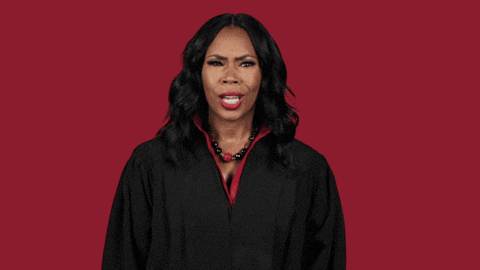
Economic power
While money isn’t the end goal, it is instrumental in ensuring that the LGBTQ+ community doesn’t fade out of existence. In a way, economic power helps sustain soft power.
Pink Dot, Singapore’s annual LGBTQ+ pride event, has been successful at raising awareness of LGBTQ+ issues. But such large-scale events cost tons of money to organise. Oogachaga, The T Project, Sayoni, and many other support organisations also need financial support to continue their operations and help with LGBTQ+ advocacy.
Donating to these organisations is the most direct way to build up economic power. It directly helps them continue operations to further advocate for change. If you’re not financially able to donate, share the work that they do to help raise awareness, so that others may donate.
Supporting queer creators and queer businesses is another way to help build power. When you buy a queer novel from a local LGBTQ-friendly bookstore, for example, you’re helping the bookstore continue their operations and bring in more queer novels in the future. You’re also financially supporting the queer artist, so that they can continue producing more LGBTQ-inclusive works. Supporting queer or queer-owned businesses (like us) also directly helps them put more LGBTQ-affirming products back into society. All these efforts help feed back and strengthen soft power.
The path ahead
The march to equality will be a long one.
And along the way, LGBTQ+ individuals will continue to suffer from the status quo. People will continue living in hostile family environments. They will continue getting bullied in childhood and in the workplace. They will continue facing difficulties forming a family. They will continue being erased by state-regulated media spaces and schools.
But how much they suffer depends on the actions that you take. Share this article to help more people understand the realities faced by LGBTQ+ people in Singapore. Donate to a local LGBTQ+ support organisation to help them help more people. Support queer producers and businesses so that they can continue bringing awareness to society.
It will not be easy. And you will have to continue doing this for years, even decades, to come. But when we eventually get there, it’ll be worth every ounce of effort.
Help is available
If you’re currently struggling with discrimination, violence, or rejection, help is available.
Brave Spaces
A social service helpline that supports LBTQ+ women in Singapore.
- WhatsApp: +65 8788 8817 (check operating hours here).
Oogachaga
An LGBTQ+ support organisation that provides affirming counselling services.
- WhatsApp counselling: +65 8592 0609 (check operating hours here)
- Email counselling: CARE@oogachaga.com (typically responds within 72 hours)
The T Project
A local trans shelter that runs trans-focused services.
- Temporary stay shelter: Find more details on their website
- Professional counselling: Find more details on their website
Action for AIDS
A non-governmental organisation dedicated to fighting AIDS/HIV infection in Singapore.
- Coordinated care for people living with HIV: Find more details on their website
- Anonymous testing: Find more details on their website
AWARE
Singapore’s biggest gender equality advocacy group that provides support for women.
- Women’s helpline: 1800 777 5555 (Mon-Fri, 10am–6pm)
- Online chat (for those unable to call): Find more details on their website
Samaritans of Singapore
An emergency helpline that provides confidential emotional support to individuals facing crises.
- 24-hour hotline: 1800 221 4444
- Email counselling: pat@sos.org.sg
Spot a mistake in the post? Let us know via email. If you think we’ve missed an important area, let us know in the comments!


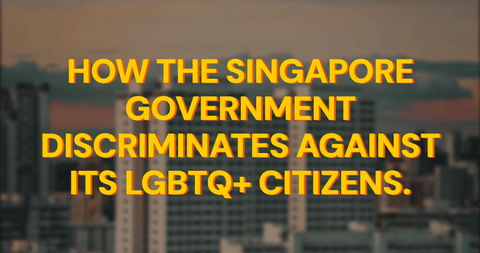
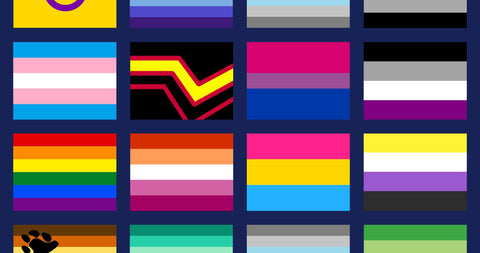

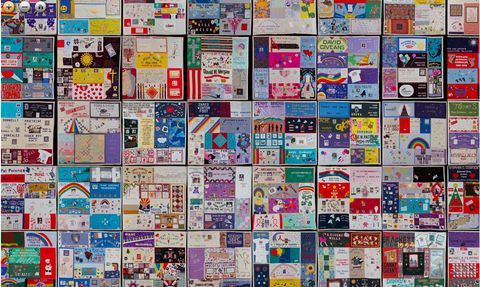
Pre-op transgirl, toilets are also am issue…
I’ve just told my friend overseas about the fact that I use the handicap toilet and she goes but you’re a girl!?….
it feels like no one cares about lgbtq+ rights in singapore. this article reminded me that they are people who are fighting. i love it, thank you